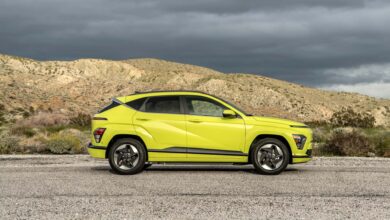The Best 3 EV Stocks to Buy in June 2024

Source: shutterstock.com/Larich
Electric vehicles (EVs) are the future. As the world leaves behind gas-fueled cars, they are slowly shifting towards more widespread usage of electric cars. They can be cheaper to own, are subsidized by the US government, do not rely on gas supply, and are environmentally friendly. Electric vehicles are becoming so popular that 1 in every 5 cars sold in the U.S. is an EV. The potential that EVs possess is also reflected in the stock market. The EV industry is expected to grow at a compounding annual growth rate of 15.5% from 2023 to 2032, representing the astounding growth potential of the industry. Below are the three best EV stocks to invest in.
BYD (BYDDY)

Source: J. Lekavicius / Shutterstock.com
BYD (OTCMKTS:BYDDY) the global leader in the EV space, that recently overtook Tesla for the largest EV car seller by market share, owning roughly 18%. A key differentiator of the company is the vertical integration it uses, allowing it to profit from different ventures associated with EV production. The company makes its own computer chips, and even has lithium mines for battery production. They are outpacing competition in development of new car models. Just a week ago, they developed a competitive hybrid car that can drive over 2000 kilometers without stopping.
Financially, BYD is also a buy. While most EV companies struggle to make profit, BYD consistently earns profit at a margin larger than 4%. The company is also growing at a fast rate, Experiencing 67% and 38% YoY growth in revenue in two of the quarters in the past fiscal year. The company is clearly growing, and being profitable allows for reinvestment which only makes progress faster.
Rivian (RIVN)

Source: Roschetzky Photography / Shutterstock.com
Rivian (NASDAQ:RIVN) is one of the largest American EV companies with potential for immense growth. Despite a sharp recent fall in valuation, the company still has strong hope of revival. Among major EV companies, they have the highest satisfaction rating. According to J.D. Power Satisfaction Rankings, their R1T model had an 86% satisfaction rating, whereas Tesla had a rating of 74%. They are also building a $5 billion production facility in Georgia, showing their commitment to increasing their capacities and rivaling bigger EV companies.
Rivian’s financials also suggest the company is a buy. The company has fell over 90% from its all time high, however the severity of the drop isn’t justified. They have grown their revenue over 100% in the last year, a significant amount that is higher than most competitors. Their margins are worrisome, though they have over $10 billion in cash to save the company from bankruptcy. With the emergence of a successful model and better margins, Rivian can make a comeback.
Lucid (LCID)

Source: Tada Images / Shutterstock
Lucid (NASDAQ:LCID) is a large American EV company with strong upside potential. The company is currently trading nearly 95% below its all time high, though there is still hope of a successful future. A key differentiator of Lucid from other EV companies is that it produces luxury EV cars. The cars are high quality, as supported by their winning the World Luxury Car at the World Car Awards. Even though the niche consumer base is making business harder, Lucid is looking to building new production facilities to revive the company.
Lucid’s finances also suggest a buy. Having fallen so far the from the original price, Lucid contains risk though high potential for rewards. The last quarter, their revenue increased by over 20% YoY, showing potential for a comeback. Even though the company is losing a lot of money, it is procuring investment from the Saudi PIF and have nearly $4 billion in cash.
On the date of publication, Tomas Levani did not have (either directly or indirectly) any positions in the securities mentioned in this article. The opinions expressed in this article are those of the writer, subject to the InvestorPlace.com Publishing Guidelines.



